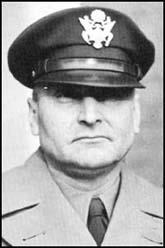Ira Eaker

Ira Eaker was born in Llano, Texas, on 13th April, 1896. He attended Southeastern State Teachers College in Oklahoma before joining the United States Army.
He was originally an infantry officer before learning to fly and joining the United States Air Service. In 1929 Eaker and his co-pilot Carl Spaatz, set a new endurance record after flying more than 150 hours aloft. They were also awarded the DFC for this achievement.
In 1936 Eaker made the first flight across America navigating solely by instruments. He also joined with Henry Arnold to write three books on flying, This Flying Game (1936), Winged Victory (1941) and Army Flyer (1942).
Promoted to brigadier general in January 1942, Eaker was appointed head of 8th Bomber Command under Lieutenant General Carl Spaatz. He arrived in England on 20th February where he set up US Army Bomber Command at High Wycombe.
In February 1943 Eaker took over as head of the US Air Force in Algiers. Eaker, along with Henry Arnold and Carl Spaatz, was a strong advocate of daylight bombing raids. At a meeting at Casablanca, Eaker, with the support of John Slessor, persuaded Winston Churchill to adopt a new strategy that became known as the Eaker Plan. It was agreed to launch a 24 hour bombing attack on Nazi Germany. Whereas the USAF would concentrate on daylight bombing the RAF would continue night bombing.
Eaker was promoted to lieutenant general in September 1943 and was placed in charge of the USAF in Britain. He helped Carl Spaatz plan Operation Overlord before becoming head of the Mediterranean Allied Air Forces.
In 1947 Eaker was deputy commander of the United States Air Force. After retiring in August 1947, Eaker was Vice President of Hughes Tool Corporation (1947-57) and head of Douglas Aircraft (1957-61). Ira Eaker died on 6th August 1987.
